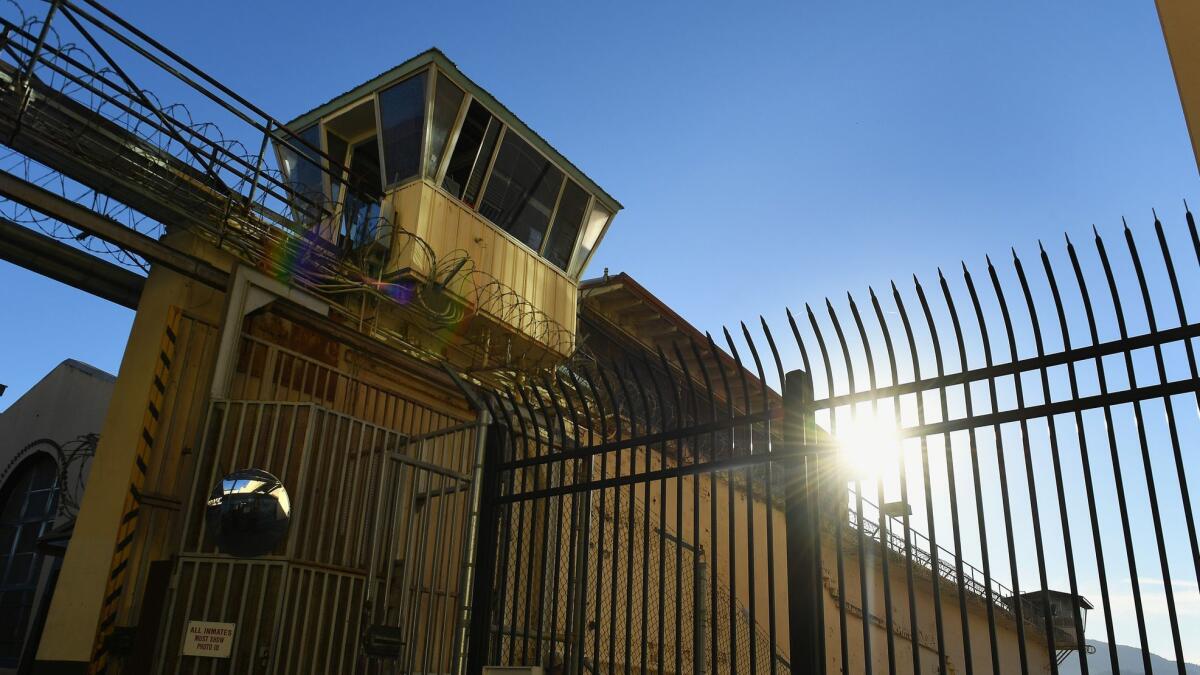Column: California’s prison parole rules might hinge on quiet fight over ballot measures

Nothing is more sacrosanct in California politics than the power of the state’s voters to create laws through ballot measures, so much so that judges rarely block a duly qualified initiative from getting its moment on election day.
But what if voters, by enacting a ballot measure, end up violating existing law? Should the courts weigh in after the campaign? Or should the courts have kept the proposal off the ballot in the first place?
Those questions are at the heart of an important case that a Sacramento judge will hear at the end of the month. The outcome has consequences that could stretch far beyond the world of elections. Both sides — the current and most recent governor on one side, advocates for crime victims on the other — have suggested that more violent criminals will roam the streets if the courts make the wrong decision.
Gov. Gavin Newsom faces a big political test as he shapes his first California budget »
The case centers on what is perhaps the centerpiece of former Gov. Jerry Brown’s legacy on criminal justice, a 2016 ballot measure offering thousands of prisoners new opportunities for parole. Proposition 57 was approved by 64% of voters in 2016 and state prisons officials have spent the intervening years crafting the rules under which more of the state’s convicted felons earn at a shot at early release — largely through credits for education and good behavior that can be used to shorten their sentences.
But a number of local prosecutors and tough-on-crime groups protested the language in Brown’s ballot measure, arguing that its definition of what constituted a “violent felony” was far too narrow. And in October, an initiative to undo part of Proposition 57 earned a spot on the Nov. 3, 2020, statewide ballot. The proposal would block inmates from being released early from prison for some of the crimes now deemed “nonviolent.” It also would tighten the rules regarding probation and increase penalties for some theft-related crimes that were reduced under a different ballot measure in 2014.
This would be a political battle for next year, except for one key thing: The tough-on-crime ballot measure would create a new state statute — a general law — whereas Proposition 57 was an amendment to the California Constitution.
Before leaving office, Brown filed a lawsuit asking a judge to block the new initiative on the grounds that a state constitutional amendment can’t be altered by a statutory ballot measure. Had the crime victims group written its proposal differently (and gathered the appropriate and larger number of needed voter signatures), Brown’s argument went, then voters could consider it. But as it stands, the crime initiative will “confuse and frustrate the voters” who would then see the proposed law struck down after the election, state-hired attorneys wrote in a recent court filing.
Gov. Gavin Newsom assumed control of the lawsuit when he took office in January. The supporters of the new ballot measure, not surprisingly, think the two governors are wrong about the law and insist there’s no good reason to block a ballot measure that was signed by more than 430,000 voters. They argue that it’s normal not to rush to judgment.
“The number of ‘substantive’ constitutional challenges courts have heard after enactment of a law (whether by the Legislature or by the people via the initiative process) are too numerous to list,” the initiative’s attorneys wrote in a recent court document.
This looming ruling will have a lasting effect, no matter what the court decides. If the initiative is blocked, a potential precedent could be set for how citizens and interest groups use the state’s 108-year-old system of direct democracy. If the measure appears on the ballot, expect an emotional and expensive campaign about crime, punishment and the rule of law.
Follow @johnmyers on Twitter and sign up for our daily Essential Politics newsletter
More to Read
Get the L.A. Times Politics newsletter
Deeply reported insights into legislation, politics and policy from Sacramento, Washington and beyond. In your inbox three times per week.
You may occasionally receive promotional content from the Los Angeles Times.











